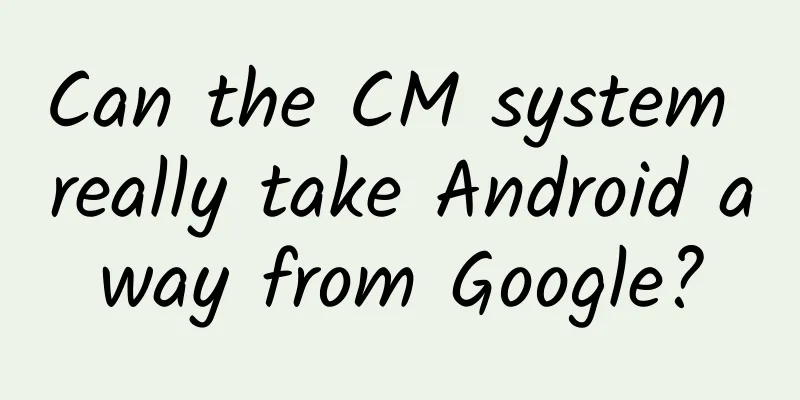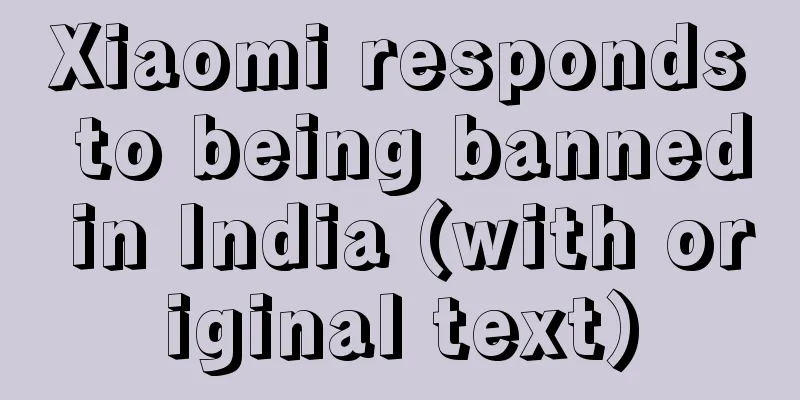Can the CM system really take Android away from Google?

|
Recently, Cyanogen, which has developed into the world's largest third-party Android operating system development company, has received new financing. Investors include Twitter, Qualcomm, Spanish telecommunications company Telefonica and media tycoon Murdoch. This round of financing has brought Cyanogen a valuation of nearly $1 billion. Many comments believe that in the current smartphone market, where iOS and Android occupy nearly 90% of the market share, Cyanogen is expected to become the third largest ecosystem. In an interview with Forbes magazine, Cyanogen co-founder and CEO Kirt McMaster once again used strong words to express his dissatisfaction with Google's domination of Android, saying that he would put a bullet in Google's head. So can Cyanogen really take Android away from Google as it and many industry commentators believe? Although the industry has described Cyanogen's so-called Android system as a lavish decoration, its essence is a deeply customized Android system, and this practice has long been common in the Android smartphone camp. The most typical example is Amazon. But the final result is that its tablets and smartphones using its own customized Android have failed to gain popularity, and even the Fire smartphone died because of this. Of course, there are also manufacturers who have succeeded in customizing Android and have at least gained their own place in the smartphone market. For example, China's Xiaomi, Huawei, Lenovo, etc. The important thing is that these manufacturers now and in the future claim to use their own independent ecosystem as a differentiated competitive advantage. When talking about Android differentiation, we have to mention another term for Android in the industry, which is fragmentation. Although in most cases, fragmentation refers to the different Android versions in the Android camp and the scattered market share, the reason is related to the fact that the relevant Android camp manufacturers are fighting each other (for different purposes). This has reached its peak through the customized Android of the above-mentioned companies. From the core idea of Cyanogen's customized Android, it is nothing more than wanting to achieve another unification with another "Android", the so-called changing the soup but not the medicine. According to statistics from the technology market research company StrategyAnalytics, in the third quarter of last year alone, among the Android phones delivered worldwide, smartphones using third-party customized Android systems accounted for 37%. We believe that Chinese smartphone manufacturers accounted for the majority of them. As we mentioned earlier, these manufacturers have a certain market position and influence in the smartphone market, and have their own ecosystems, so the possibility of them switching to Cyanogen is very small. As for Samsung, which currently occupies the largest market share in the Android camp (estimated to be around 30%), they have their own Tizen system. Although it is currently progressing slowly in the smartphone market (which may also just illustrate the strength of Google Android), it is only a matter of time before they establish their own independent ecosystem. Even if they do not establish their own ecosystem, according to industry commentators, Samsung has suffered from the strong Android experience, and Samsung will not be able to hand over its fate to another third-party ecosystem in the future. This can also be seen from the fact that there is no Samsung in Cyanogen's latest financing. From the above, it is not difficult to see that among the mainstream smartphone manufacturers that can provide Cyanogen with the minimum survival foundation, it is impossible for them to strongly or sincerely support Cyanogen, either because of past lessons or because of their own differentiated advantages. Then the next question is, will emerging or smaller mobile phone manufacturers strongly support Cyanogen? It is said that in addition to OnePlus and OPPO, Indian mobile phone brand Micromax will use Cyanogen OS in its high-end mobile phone product series Yu. Alcatel, the seventh largest mobile phone brand in the world, has also become a partner of Cyanogen. Let's not talk about these manufacturers who are also launching mobile phones with Android and their own customized systems at the same time. Judging from the market influence of these manufacturers, even if all of them adopt Cyanogen OS, it is not enough to support Cyanogen's survival and sustainable development. Speaking of survival, industry analysts say that Cyanogen will be able to earn about $10 per phone through pre-installation of its own Cyanogen OS by mobile phone manufacturers in the future. The industry knows that in the Android camp, only Samsung and a very small number of manufacturers can make profits, and some are still making small profits. What does $10 mean to those small-scale manufacturers? Especially when Microsoft, which is currently the third largest smartphone ecosystem, has to change its business model and not only makes its operating system but also killer applications such as Office free in the smartphone and tablet market today, where does Cyanogen's confidence come from in going against the trend in the mobile Internet market (smartphones and tablets)? How many manufacturers will buy it? To sum up, we believe that although Cyanogen is under the banner of openness, its core purpose is contrary to the thinking of the mainstream manufacturers in the current Android camp, that is, to build its own ecosystem to form a differentiated competitive advantage. At the same time, Cyanogen's licensing fee business model does not conform to the characteristics and trends of mobile Internet (Microsoft's change is a typical example). Perhaps as some of Cyanogen's allies said: McMaster is very aggressive and he is good at bluffing. I think if it were not for this, Cyanogen would not exist. |
<<: What are the hot topics in mobile development in 2015?
>>: What did the Internet giants say at the Boao Forum?
Recommend
Analysis of Through Train Promotion Skills
What are the through train promotion techniques? ...
How can brands market to young people?
This year's 618 mid-year sale kicked off earl...
How does WeChat Reading use social networking to increase user growth?
WeChat , with 1 billion users, has long been at t...
Apple makes concession: iPhones with batteries you’ve replaced can also be repaired
According to foreign media reports, Apple's i...
Exploring the dual-face of broadcasting and television: conservative industry promoters
As the entire OTT industry is declining due to th...
World Quantum Day | Why is it so elusive to scientists? Unveiling the mystery of quantum
|||| Compiled by New Media Editor Duan Dawei Apri...
Smartphones are updated very quickly, so why does the recording function still exist?
For users, mobile phone updates undoubtedly repre...
This set of blockbusters shot by Wang Yaping is shocking!
November 18 Wang Yaping, an astronaut on the Shen...
How to write a persuasive campaign proposal?
Every activity is a marketing event. A successful...
Guided by the "hot product methodology", iCAR's brand upgrade is "quite interesting"
Today's new energy vehicle sector seems to be...
LeEco Auto's failure has brought Jia Yueting one step closer to shattering his dream of building a car
Previously, the resignation of LeTV Auto co-found...
How to increase user growth? Take Pinduoduo and Xiaohongshu as examples
Yesterday, I had the opportunity to listen to mor...
Operational Growth | Let’s talk about the growth flywheel of product operations
This time I want to talk to you about product ope...
WeChat applet development video tutorial compilation [Baidu cloud resource collection]
On January 9, 2017, the mini program released by ...
When developing an app, what does a product manager need to do from beginning to end? -- Before the project starts
[[163676]] I have been working in product managem...









